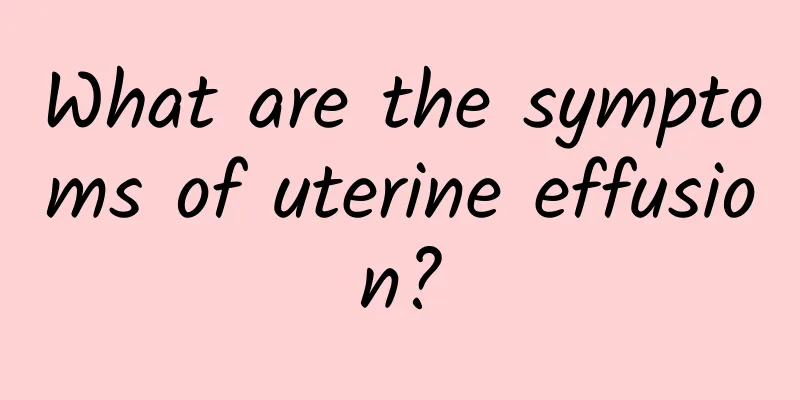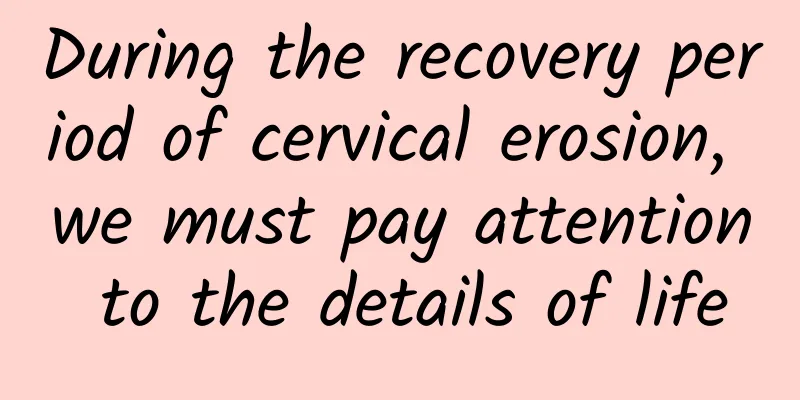What medicine is better for cervicitis and endometritis

|
The treatment of cervicitis and endometritis requires the selection of drugs according to the cause. Common treatment methods include antibiotics, anti-inflammatory drugs and Chinese patent medicines. Specific drugs should be used under the guidance of a doctor to avoid self-medication. 1. Antibiotic treatment Cervicitis and endometritis are mostly caused by bacterial infection, and antibiotics are the main treatment. Commonly used antibiotics include: Cephalosporins: such as cefixime and ceftriaxone, are suitable for infections caused by Gram-positive and Gram-negative bacteria. Quinolones: such as levofloxacin and moxifloxacin, have strong bactericidal effects against a variety of pathogens. Metronidazole: It is often used in combination with other antibiotics for anaerobic infections. 2. Anti-inflammatory drug treatment Inflammatory response is the main manifestation of cervicitis and endometritis, and anti-inflammatory drugs can relieve symptoms. Commonly used drugs include: Nonsteroidal anti-inflammatory drugs: such as ibuprofen and diclofenac, can reduce pain and inflammation. Glucocorticoids: Such as prednisone, are suitable for severe inflammation but should be used with caution. 3. Treatment with Chinese patent medicine Chinese patent medicine has a conditioning effect and can assist in the treatment of chronic cervicitis and endometritis. Commonly used medicines include: Gynecological Qianjin Tablets: have the effects of clearing away heat, detoxifying, promoting blood circulation and removing blood stasis. Golden Rooster Capsule: Suitable for gynecological inflammation caused by damp heat. Guizhi Fuling Pills: can improve blood circulation and relieve inflammation. 4. Diet adjustment Diet can help to relieve inflammation. It is recommended to: Eat more foods rich in vitamin C, such as oranges and kiwis, to enhance immunity. Supplement foods rich in Omega-3 fatty acids, such as deep-sea fish and flax seeds, to reduce inflammatory responses. Avoid spicy foods, such as chili peppers and alcohol, to avoid aggravating symptoms. 5. Adjust your lifestyle Good living habits can help you recover from illness: Maintain personal hygiene, change underwear frequently, and avoid using irritating detergents. Avoid sitting for long periods of time and do appropriate exercise to promote pelvic blood circulation. Check regularly, monitor changes in the condition, and adjust the treatment plan in a timely manner. The treatment of cervicitis and endometritis requires a combination of medication, diet, and lifestyle adjustments. Antibiotics, anti-inflammatory drugs, and Chinese patent medicines are commonly used, but they must be used under the guidance of a doctor. Eat more foods rich in vitamin C and omega-3 fatty acids, and avoid spicy foods. Maintaining good living habits and regular checkups will help with disease recovery and prevent recurrence. |
<<: How to treat mild cervical erosion and cervical hypertrophy
>>: Does cervical erosion and hypertrophy affect pregnancy?
Recommend
What are the characteristics of painless abortion?
Painless abortion is now very popular among peopl...
Pelvic inflammatory disease discharge
The discharge from pelvic inflammatory disease us...
How much does it cost to treat uterine fibroids? What is the general cost of uterine fibroids?
Uterine fibroids are a very serious malignant tum...
Even though you are not pregnant, your belly is still slightly protruding? Nutritionist: Eat more of these to boost abdominal fat burning!
Many office workers or students sit for long peri...
How to improve the cure rate of spontaneous abortion
It is a happy thing to be able to go through the ...
What are the dangers of thick endometrium?
What are the hazards of endometrial thickening? D...
How to treat acute and chronic cervicitis in women? There are five side effects of physical therapy for cervicitis in women.
Cervicitis has now become the most common gynecol...
Say goodbye to back and knee pain! Two key exercises to nourish your muscles and prevent aging
If you don’t want to spend the rest of your life ...
How to treat uterine effusion in early pregnancy? Is it physiological or pathological?
Early pregnancy uterine effusion can be divided i...
Is ovarian cyst related to menstruation? What should I do if my menstruation is delayed?
Two-thirds of women's lives are accompanied b...
What is the best medicine for women with abortion infection? These two medicines can control abortion infection
Young people nowadays advocate working first. If ...
Can Bartholinitis be passed on to family members?
In recent years, the number of people suffering f...
What are the symptoms of hyperplastic vulvar leukoplakia
Now that we have understood vulvar leukoplakia, l...
The longer the aerobic exercise time, the better the fat burning and weight loss effect. It is important to add the right amount of muscle strength.
According to research, the benefits of aerobic ex...
How long does it take for endometrial thickening to be completely cured?
In daily life, women need to pay attention to the...









